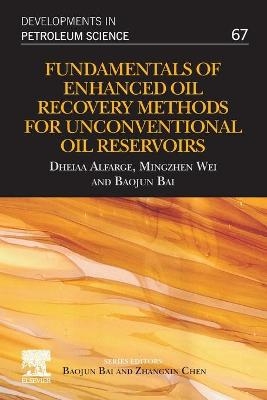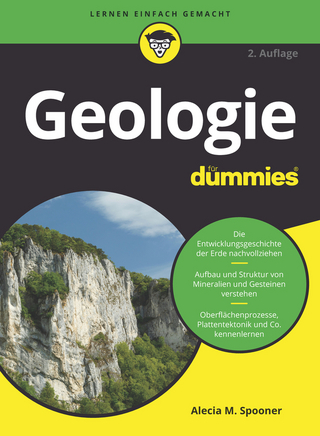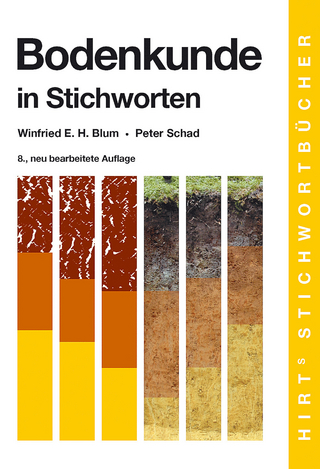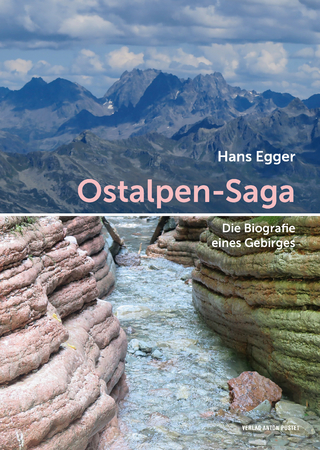
Fundamentals of Enhanced Oil Recovery Methods for Unconventional Oil Reservoirs
Elsevier Science Publishing Co Inc (Verlag)
978-0-12-818343-4 (ISBN)
The book describes the parameters affecting obtained oil recovery by injecting different EOR methods in both the microscopic and macroscopic levels of ULR. This book also provides proxy models to associate the functionality of the improved oil recovery by injecting different EOR methods with different operating parameters, rock, and fluid properties. The book provides profesasionals working in the petroleum industry the know-how to conduct a successful project for different EOR methods in shale plays, while it also helps academics and students in understanding the basics and principles that make the performance of EOR methods so different in conventional reservoirs and unconventional formations.
Dheiaa Alfarge was born in 1989, Iraq. He received his bachelor’s degree in petroleum engineering from Baghdad University, Iraq in 2011; he was the valedictorian of Petroleum Engineering Department of class 2011. He received both of his MSc degree and PhD degree in petroleum engineering from Missouri University of Science and Technology in 2016 and 2018 consequently with 4.0 GPA, Rolla, Missouri, USA. His research interests are mainly in reservoir simulation and EOR methods for conventional and unconventional reservoirs. He published more than 23 papers in different competitive journals as well as conferences around the globe. He worked as senior petroleum engineer in Iraqi Ministry of Oil in both of OPDC and MOC. Furthermore, he worked as adjunct professor in University of Karbala, Iraq. Currently, he is serving as a research advisory board member in SRP-Center.iq, Karbala, Iraq. He has been recently appointed as assistant professor in Izmir Katip Celebi University, Izmir, Turkey. Dr. Mingzhen Wei, Associate Professor at Department of Geosciences and Geological and Petroleum Engineering (GGPE), Missouri S&T. Dr. Wei was well trained in Petroleum Engineering (B.S. and M.S.) and Computer Science (Ph.D.). Her Ph.D. research was data management, data quality enhancement, applications of data mining and advanced artificial intelligence computation in Petroleum Engineering. She had two years of experience in metadata modeling with Center of Excellence for Geospatial Information Science (CEGIS), U.S. Geological Survey (USGS) as a postdoc. She has been devoted her time on Enhanced Oil Recovery (EOR) and unconventional energy resources using reservoir simulation and data analytics methods. Dr. Wei has her research team work well published, with 100+ publications on prestigious journals and varied Society of Petroleum Engineers (SPE) and other conferences. Dr. Baojun Bai is a Professor and the holder of the Lester R. Birbeck Endowed Chair in Petroleum Engineering Program at Missouri University of Science and Technology (S&T). He holds PhD degrees in Petroleum Engineering from New Mexico Tech and in Petroleum Geology from China University of Geoscience-Beijing. He has seven years of industry experience as a reservoir engineer and the head of conformance-control Team of RIPED, PetroChina. Dr. Bai was a post-Doctoral scholar at the California Institute of Technology before he joined Missouri S&T as a faculty member in 2006. He has more than 20 years of experience in the research areas of enhanced oil recovery, unconventional reservoir development, conformance control, CO2 sequestration and characterizations. Dr. Bai has published more than 200 papers in peer-reviewed journals and over 120 papers in SPE conferences by 2020. He served as the JPT Editorial Committee from 2007 to 2013. He serves as the associate editor for Journal of Petroleum Sciences and Engineering, Geofluids, and Petroleum Sciences. He is an SPE distinguished member.
1. Introduction of shale and tight oil reservoirs 2. CO2-EOR in shale and tight oil reservoirs 3. Comparative analysis between CO2-EOR mechanisms in conventional reservoirs versus shale and tight reservoirs 4. Natural Gases Based EOR Versus CO2-EOR in Shale and Tight Oil Reservoirs 5. Air injection in shale and tight oil reservoirs 6. Water injection in shale and tight oil reservoirs 7. Chemical EOR methods for unconventional reservoirs 8. Selection Criteria for Miscible-Gases Based EOR in ULR 9. Other EOR methods 10. The effects of nanopore confinement on different EOR methods 11. The impacts of geomechanics coupling on different EOR methods 12. Comparative and optimization of the most applicable EOR methods
| Erscheinungsdatum | 11.09.2020 |
|---|---|
| Reihe/Serie | Developments in Petroleum Science |
| Sprache | englisch |
| Maße | 152 x 229 mm |
| Gewicht | 470 g |
| Themenwelt | Naturwissenschaften ► Geowissenschaften ► Geologie |
| Technik ► Elektrotechnik / Energietechnik | |
| ISBN-10 | 0-12-818343-8 / 0128183438 |
| ISBN-13 | 978-0-12-818343-4 / 9780128183434 |
| Zustand | Neuware |
| Haben Sie eine Frage zum Produkt? |
aus dem Bereich


